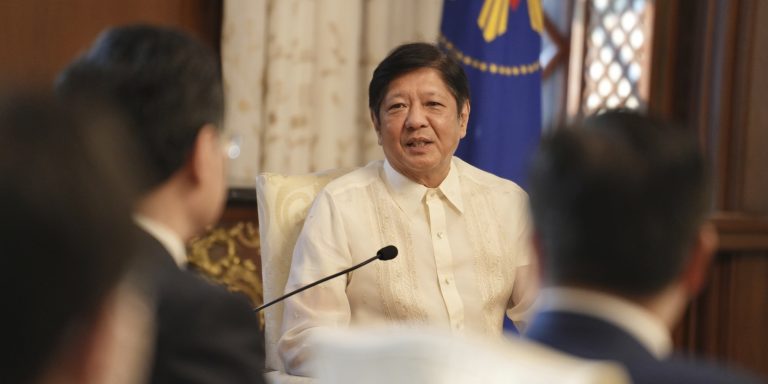INTELBRIEF
May 12, 2023
IntelBrief: Overlooking Brutal Filipino ‘Drug War,’ U.S. Reaffirms Security Partnership

Bottom Line Up Front
- Despite the brutal and indiscriminate ongoing Filipino drug war, the United States publicly reaffirmed its security alliance with the Philippines last week.
- Two major recipients of U.S. counterterrorism assistance to the Philippines – the Filipino military and national police – played significant roles in the bloody drug war initiated under former Filipino President Rodrigo Duterte, which was rife with falsified evidence, extrajudicial killings, and torture.
- Ostensibly aimed at deterring Chinese expansionism, a new set of U.S.-Philippines security guidelines will also sustain bilateral counterterrorism ties, even as the Philippines’ terrorist threat ebbs to record lows.
- While Philippines President Ferdinand Marcos Jr. has promised a gentler anti-drug campaign predicated on prevention and rehabilitation, Human Rights Watch has reported that “the unlawful use of force by the police and government agents” to counter drug crime “has continued” under his administration.
Barely one month after the Philippines cut contact with the International Criminal Court (ICC) over an investigation into the country’s murderous drug crackdown, the United States has publicly reaffirmed its security commitments to the Southeast Asian island nation in a bid to ward off Chinese expansion. Filipino President Ferdinand Marcos Jr. has offered assurances that he would refocus his predecessor’s national anti-drug campaign to prioritize prevention and rehabilitation, but human rights groups say the state’s unlawful violence has not abated since he took the helm. To this end, continued U.S. support for the Filipino military and law enforcement may embolden, if not directly contribute to, the human rights violations of the so-called drug war.
On May 3, the United States and the Philippines formally established a set of “Bilateral Defense Guidelines” to guide their security relationship. Citing their “shared vision for a free and open Indo-Pacific region,” the document reaffirms a seven-decade-old mutual defense commitment, which calls for the two countries to come to each other’s aid in the event of armed aggression against U.S. or Filipino forces, aircraft, or public vessels. Although fears of an expansionary China are clearly the primary drivers of the new document, counterterrorism objectives and non-state threats also found their way onto the page. Toward the end of the guidelines, the two countries pledge to sustain support for the Philippines’ counterterrorism and “prevention of violent extremism” capacities. In doing so, the United States is expected to provide the Philippines with advice, assistance, training, and intelligence, and countries are to coordinate their “military, civilian law enforcement, and justice institutions, to deter and address the root causes of radicalization and resort to violence[.]”
Beyond the Middle East, which registered as the global epicenter of terrorist activity for much of the past two decades, the Philippines has consistently ranked as one of the countries most afflicted by terrorism and insurgency. It ranked among the top fifteen countries most affected by terrorism in eight of the ten years between 2011 and 2020, according to the Global Terrorism Index (GTI). The Philippines has been a magnet for foreign terrorist fighters from neighboring Southeast Asian countries and is the only country in East Asia where ISIS has held territory. With funding from the terrorist group’s central command in Syria, Filipino ISIS affiliates laid siege to Marawi for five months, even managing to seize temporary control of the city in 2017.
More recently, however, this threat appears to be receding in the Philippines. Soon after the Marawi siege, the United States revived its dormant in-country counterterrorism operation, Operation Enduring Freedom-Philippines, under the guise of the new Operation Pacific Eagle-Philippines. Following the 2020 conclusion of Pacific Eagle, the country’s terrorism problem seemed to decline substantially. Between 2021 and 2022, the Philippines registered one of the ten greatest decreases in terrorism deaths of any country in the world, and “recorded its lowest level of terrorism since the inception of the GTI.”
While this may suggest that U.S. security assistance has positively impacted the Philippines, this support also strengthened state institutions as they were executing a drug war that has reportedly killed thousands of Filipino civilians. While the Philippines government has admitted that its drug campaign has led to more than six thousand civilian deaths, organizations like the Armed Conflict Location and Event Data Project and the UN Office of the High Commissioner for Human Rights estimate the true figures could range from 7.7 thousand to upwards of 8.6 thousand. Other international actors say the state may be responsible for as many as 30 thousand deaths. The ICC is currently investigating the alleged crimes of the state’s drug war – including falsified evidence, torture, enforced disappearances, and premeditated murder of civilians – as possible crimes against humanity.
Yet even as damning evidence came to light about this violent and possibly criminal crusade – and as the Philippines’ former President Rodrigo Duterte responded to condemnation by mocking then-U.S. President Barack Obama and threatening to kick U.S. forces off Filipino territory – U.S. support continued flowing to the Filipino military and national police enforcers in the form of training, equipment, and intelligence.
Now, with the threat of a more militarily assertive China looming large in the minds of both U.S. and Filipino government officials, it looks like history may repeat itself. While Marcos’ has promised a gentler anti-drug campaign predicated on prevention and rehabilitation, Human Rights Watch has reported that “the unlawful use of force by the police and government agents” to counter drug crime “has continued under Marcos.” Moreover, the advocacy group noted that the campaign has become less transparent, as the Marcos administration has stopped releasing data on the number of individuals killed during its anti-drug operations. But so long as his territory offers a strategic foothold for U.S. forces near the South China Sea, and if he can keep a lid on his country’s terrorism problem, the evidence does not suggest the United States has an appetite to reconsider this relationship.